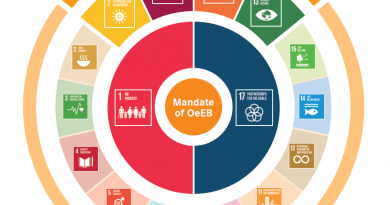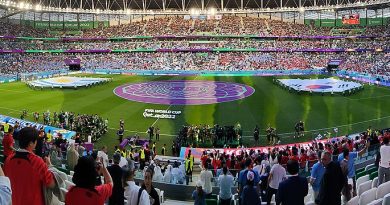Yet Another Truth For Russia to Deny
By Abby Shamray
Editor in Chief
“We want to see the perpetrators caught and put on trial,” Evert van Zijtveld, whose two children died in the infamous MH17 Malaysia plane crash, told the AFP news agency. That sentiment has fueled the two-year investigation of the source of the missile that shot down the plane.
The U.S. State Department stated that the JIT’s findings matched those of American officials. The bulk of the evidence came from telephone interceptions between separatist fighters in East Ukraine, open-source photographs, eyewitness accounts, and satellite data.
Russia and separatist rebels have adamantly denied any connection. Moscow claims that it does not support the separatists and would not supply them with an advanced weapon system that requires a specialized, trained crew. The separatist rebels also denied a part in the attack, saying they did not have access to surface-to-air missiles or the training required to operate them.
Both Russia’s Foreign and Defense Departments have stated that evidence was sourced from the Internet and Ukrainian security services, according to the Washington Post. “Thus the objectivity of the information, and the subsequent conclusions made on it, must summon doubt,” said Russian military spokesman Major General Igor Konashenkov.
So, is bias against Russia the main motivator in the outcome of the investigation? Is there a worldwide conspiracy to paint Russia as the bad guy, the ultimate villain? Signs point to no.
Albert Koenders, the Netherlands’ Foreign Minister, says that the missile undeniably came from Russia, but jumping to conclusions about who will be prosecuted does no good to either side of the investigation. The Sydney Morning Herald reported that Koenders met with a Russian ambassador after the JIT released interim conclusions of the tragedy.
The intent of the meeting was not to accuse Russia of perpetrating the attack, but rather to discuss Russian efforts to undermine the legitimacy of the group’s work. Koenders emphasized that the nationality of those to be prosecuted is still unknown and that the case’s jurisdiction has yet to be decided. He also wanted to make it known that while Russia has claimed the outcome of the investigation was politically motivated, the investigation took two years because the JIT wanted to be absolutely sure that its results were valid.
Russia has a reputation of decrying panels of experts because they don’t agree with their opinion. For example, Russia sought to redact a United Nations Security Council report exposing problems with Darfur’s goldmines, opposed a United Nations General Assembly resolution calling upon states to not recognize a change in status of the Crimea region, and blocked a publication of the Iran Sanctions Panel of Experts, not to mention the recent controversy regarding Syria.
When Russia is frequently conflicting factual reports by panels of experts because it does not align with their politics and goals, it is hard to take Russia’s complaints at face value. They have political motivation to speak out against the JIT’s credibility.
Yes, those conducting the investigation are Dutch, Australian, Belgian, Ukrainian, and Malaysian prosecutors, groups that traditionally have reason to oppose Russia. But the “evidence” presented by Russia and the story it has told have shifted and changed, turning to a web of lies.
BBC reports that over time, Russia’s story has changed from providing satellite images showing it was either a surface-to-air Buk missile or a Ukrainian military jet, to a Russian Investigation Committee providing a “key eye witness” who stated that the plane was downed by a Ukrainian Su-25 fighter. A Russian missile-producer said in 2015 that the culprit was a Buk, but one Russia no longer had in its arsenal. Then, Russia’s defense ministry releasing satellite radar suggesting that the MH17 was in fact shot down by a missile though not by Russian-backed rebels. When the story is constantly changing in Russia’s favor and using biased sources as well as a lack of independent experts to corroborate the findings, it isn’t hard to see that something is amiss.
According to the Economist, Russia wants to blame the crash on Ukraine, but even if Russia did not supply a missile (unlikely considering the overwhelming evidence), Moscow is still implicated in the separatists’ actions because Putin has spurred on the war and supplied the separatists with tanks, personal carriers, and artilleries.
Russia has become an easy target when something goes wrong internationally, but its reputation is not undeserved. The country’s insistence on stubbornly opposing panels of experts for political reasons, its shifting story that doesn’t align with current evidence, and its history of supporting separatist groups all imply that Russia is involved in the MH17 crash at some level.
The JIT investigation seeks justice for the victims of the tragedy. Regardless of whether Russia supplied the bullets or pulled the trigger, it is undeniable that the country had a role and should be held accountable one way or another.


